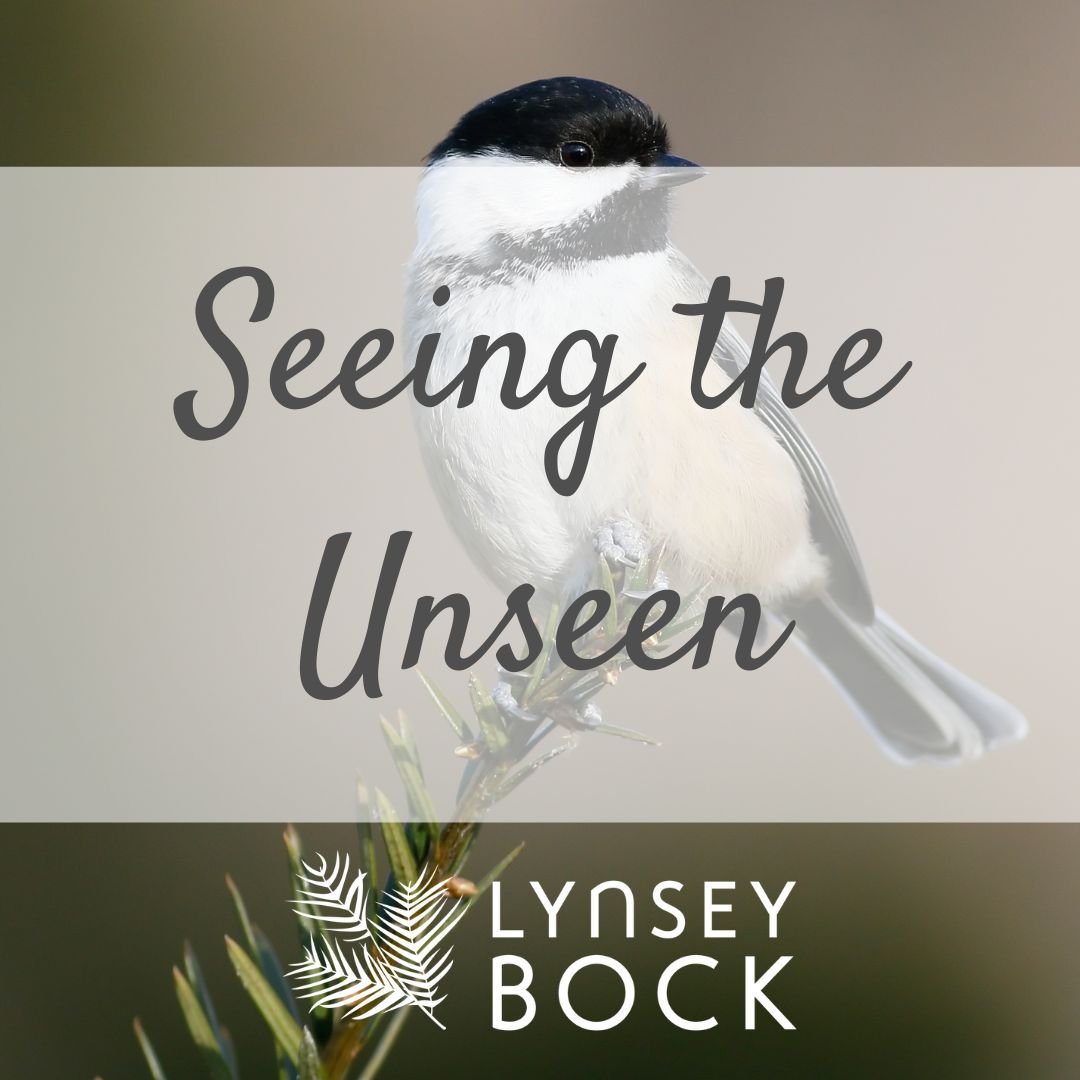Adulting is hard. I often wish I could go back to a time in my childhood when I wasn’t responsible for anyone but myself. I didn’t have to worry about preparing meals, maintaining a home, or making sure bills were paid. I was able to live carefree because I was blessed to be a part of a family where I was always safe and provided for. At the time, I took that for granted.
No matter how old you are or what kind of home you grew up in, I’m going to guess that you have a deep desire for this kind of security too. Even the most independent among us rest a little easier knowing that someone who cares has our back when we really need them.
In the passage we’re looking at today, we’re going to see that God provides the security we long for. He is not indifferent or unfeeling toward us but faithfully offers us just what we need. He cares for us lovingly, like a shepherd tending his sheep.
John 10:1-18 is a continuation of a conversation between Jesus and the Pharisees that began in John 9 after Jesus healed a man who was born blind. The Pharisees became angry and kicked the man out of the Temple because he wouldn’t denounce Jesus. They overheard Jesus speaking to the healed man later and started arguing with him. Jesus told them they were guilty of sin because they seen him and not believed. That’s where chapter 10 picks up.
Here, Jesus employed an extended metaphor to contrast himself against the many corrupt leaders of Israel who had used their positions to lure the Israelites down a path of defiance against God. In the Old Testament, the corruption of Israel’s rulers splintered and weakened the nation. The Promised Land was conquered by foreign invaders and God’s people were taken into exile. Only a small remnant ever returned to their homeland. In Jesus’ day, the Pharisees were just the latest in a long line of corruption.
To make this contrast, Jesus used symbolism that appears frequently throughout the Bible: the shepherd and the sheep. Shepherding would have been familiar to the people both as a common occupation and as an analogy for God’s tender care for his people (as in Psalm 23). In this passage, Jesus (the door, the good shepherd) rebukes the Pharisees (the stranger, the thief, the hired hand) for their corruption, and teaches us how he cares for believers (his flock). As the door and the good shepherd, Jesus gathers, provides for, and sacrifices himself for the security of his beloved people: his flock.
He Gathers His Sheep
1 “Truly, truly, I say to you, he who does not enter the sheepfold by the door but climbs in by another way, that man is a thief and a robber. 2 But he who enters by the door is the shepherd of the sheep. 3 To him the gatekeeper opens. The sheep hear his voice, and he calls his own sheep by name and leads them out. 4 When he has brought out all his own, he goes before them, and the sheep follow him, for they know his voice. 5 A stranger they will not follow, but they will flee from him, for they do not know the voice of strangers.” 6 This figure of speech Jesus used with them, but they did not understand what he was saying to them.
A sheepfold was a protective enclosure for the different flocks of sheep in a community. When a shepherd came to collect his sheep from among the other flocks, the watchman would recognize him and let him in. His sheep would know him so well, they would hear his voice and come when he called. This idea continues in verses 14-16:
14 I am the good shepherd. I know my own and my own know me, 15 just as the Father knows me and I know the Father; 16 And I have other sheep that are not of this fold. I must bring them also, and they will listen to my voice. So there will be one flock, one shepherd.
Just like the sheep in this illustration, believers are people from all walks of life who hear and respond to Christ’s call to follow him and be a part of God’s flock. Faithful Christians come from all nations, races, and languages (Revelation 7:9) and are united in their desire to follow Christ together. They don’t just respond to Jesus at conversion but follow his leading for life.
As believers, we must memorize the sound of our Good Shepherd’s voice so that we will hear and respond to it. As we grow in godliness through the work of the Holy Spirit, our knowledge of God will increase so that we can distinguish truth from deception. This won’t just happen passively. Just as you would never be able to get to know a friend or your spouse better if you never listened to anything they said, a Christian cannot expect to know God if they ignore his primary means of communication to us: the Bible. False teachers want to trick believers with lies about God that will trap them in sin. Believers must arm themselves with a deep knowledge of the Word so that they can discern right teaching from false teaching and not be misled. We also need to ask the Holy Spirit to make our rebellious hearts obedient, so that we desire to follow and obey our shepherd.
He Provides For His Flock
7 So Jesus again said to them, “Truly, truly, I say to you, I am the door of the sheep. 8 All who came before me are thieves and robbers, but the sheep did not listen to them. 9 I am the door. If anyone enters by me, he will be saved and will go in and out and find pasture. 10 The thief comes only to steal and kill and destroy. I came that they may have life and have it abundantly.
The caring shepherd acts as a door for the sheep between their enclosure and the pasture. When danger is present, the shepherd gathers the sheep into their pen where he can protect them. When it’s safe, he allows the sheep to go out to the pasture to graze in lush meadows by quiet streams. The shepherd is concerned for the well-being of his sheep and wants them to thrive in his care.
The thieves are false teachers, who distort God’s word for their own gain. They twist up the truth at the expense of others’ souls. They tell us that God loves us more when we follow a strict set of rules and less when we fail. If we’re struggling, they say we just don’t have enough faith. Try harder. They whisper that maybe we’re just not good enough, or God doesn’t even care. Why bother? These are lies that can be taken down with knowledge of God's word, but we also need to believe the truth of found in the Bible so we can abide in the security it offers.
Jesus cares for his flock of believers and provides for all of our needs. We can trust the promises of God’s Word and rest in the knowledge that nothing we need will ever be withheld from us (Psalm 84:11). We need to believe that that's true. Sometimes, in dark seasons we may wonder if God has abandoned us. In those times, we need to pray for God to give us the faith we lack. We need to go before him and say, “I believe, help my unbelief!” (Mark 9:24).
He Sacrifices Himself For His Sheep
11 I am the good shepherd. The good shepherd lays down his life for the sheep. 12 He who is a hired hand and not a shepherd, who does not own the sheep, sees the wolf coming and leaves the sheep and flees, and the wolf snatches them and scatters them. 13 He flees because he is a hired hand and cares nothing for the sheep. 14 I am the good shepherd. I know my own and my own know me, 15 just as the Father knows me and I know the Father; and I lay down my life for the sheep. 16 And I have other sheep that are not of this fold. I must bring them also, and they will listen to my voice. So there will be one flock, one shepherd. 17 For this reason the Father loves me, because I lay down my life that I may take it up again. 18 No one takes it from me, but I lay it down of my own accord. I have authority to lay it down, and I have authority to take it up again. This charge I have received from my Father.”
God cares deeply for us because we belong to him. Satan prowls like a wolf waiting to pounce on the weak. False teachers are like hired hands who scatter at the first sign of trouble, but Christ is our good shepherd. Without compulsion or coercion, he willingly gave himself up for us when he died on the cross for our sins. As God’s beloved son, with authority over life and death, he rose so that we can have new life in him, free from the bondage of sin. The sheep shouldn't repay the shepherd by turning around and playing chicken with the wolf. We must respond by putting our sin to death and worshipping Christ with our obedience. We need to live in the freedom we've already been given. We should hate our sin and run from it, not see how close we can get before it snatches us up.
Even though I still have to do adult things and care for others, I am secure in the knowledge that Jesus is our good shepherd. He teaches believers to hear his voice and respond to it and gathers us into community with all of his sons and daughters. He gives us everything we need and never holds back anything good from us. He lays down his own life to save us from the deadly trap of sin.
Precious Father, thank you for being our shepherd. Thank you for calling us to be a part of your family and giving us security in your provision and protection. Thank you for freeing us from our slavery to sin through Jesus' death on the cross. Grow in us the desire to seek you and hear from you through your Word, and give us the faith we need to trust your promises. Holy Spirit, transform our hearts so that we can gratefully and joyfully worship you in obedience. Amen.
Respond
What verses do you turn to when you need to remember the goodness of our shepherd? What other ways do you remind yourself of the security we have in Christ?






